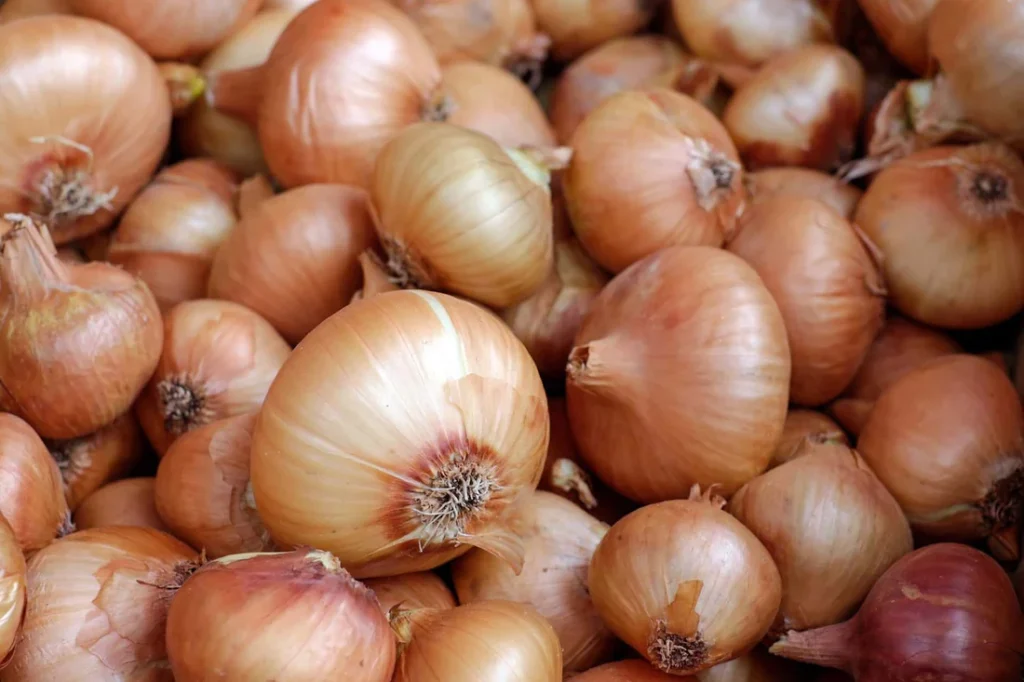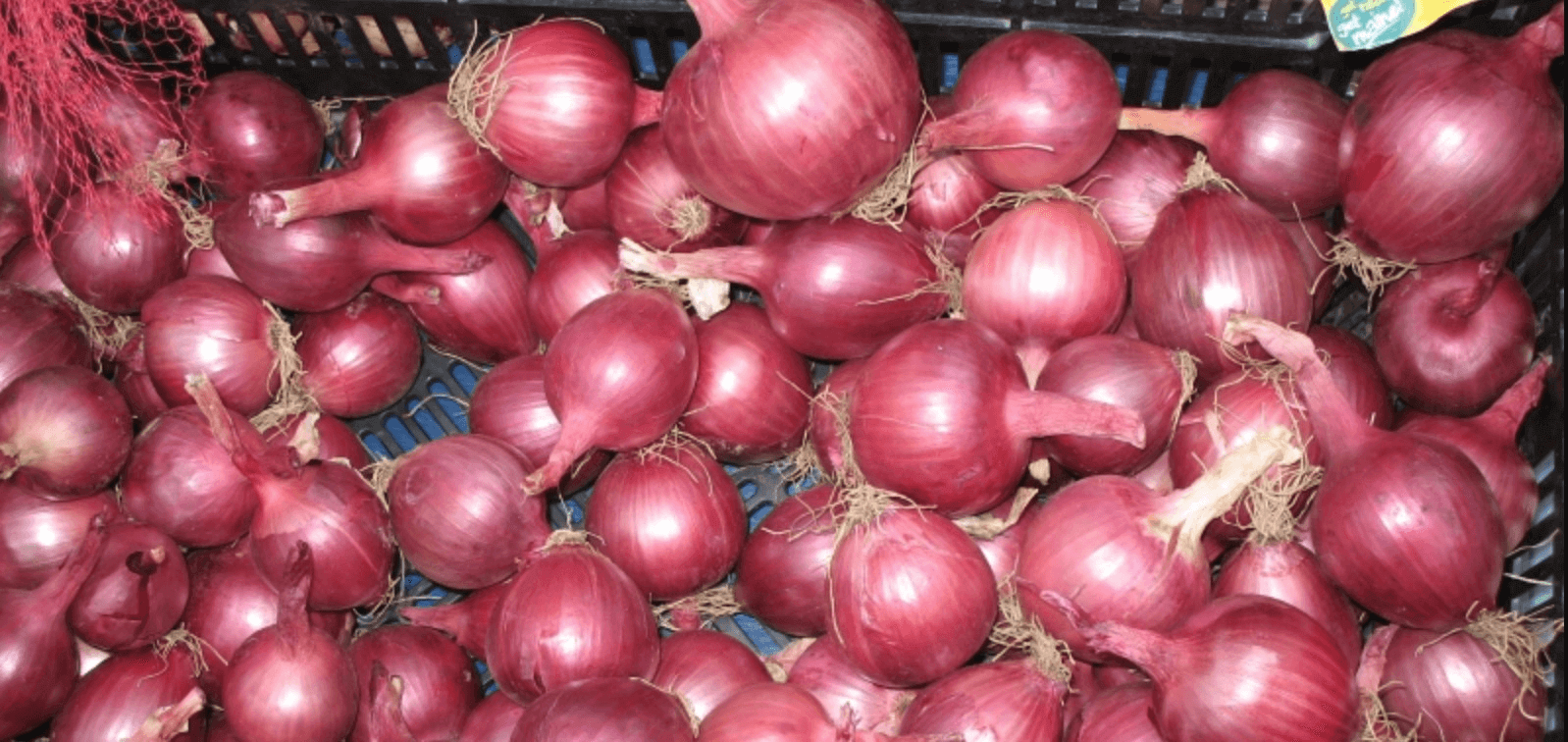Food & Climate
Egyptian onions are an important vegetable in the northeastern African country, and are an important ingredient in most meals, especially traditional ones such as Falafel.
Egypt grows an average of 250,000 acres of onions annually, producing about 3.3 million tons, of which about 2.5 million tons are directed to local consumption, and the rest is exported, according to data from the Ministry of Agriculture.
Last year, the price of onions jumped to unprecedented levels in the local market, as the price of a kilogram exceeded 40 pounds (US dollar = 48.5 Egyptian pounds). This forced the government to ban its export, to ease pressure on prices in the local market.
However, prices witnessed a sharp decline this year, as the price of a kilogram of Egyptian onions reached less than 5 pounds at the beginning of the season.
Many farmers also complained about the damage to the crop, and the damage of Egyptian onions – also – after storage. Many farmers attributed the reason to climate change, and unusual rains falling on onions at the end of the season, which increased the moisture content of the crop prepared for storage.
An agricultural engineer and member of an onion farmers’ group in Egypt on Facebook said that rain fell on onions during the “fasting” stage, which is when the irrigation process is interrupted for drying and storage, which led to 30% of the neck rotting.

Another farmer added that the unusually high temperatures in Egypt were also among the reasons for the crop damage and farmers’ losses.
Farmers posted videos and photos showing the onion damage, such as Mohamed Abdel Basset’s account, who commented on the video: “The crop of 5 acres was lost.”
For his part, Hatem El-Nagib, Vice President of the Vegetables and Fruits Division at the Federation of Egyptian Chambers of Commerce, said to the “Food & Climate” platform: The increase in Egyptian onions prices last year tempted farmers to increase the cultivated areas, as they increased by 30%.
He explained that the increase in supply reduced prices, even with similar export requests for last year.

He added that the spoilage of a large percentage of Egyptian onions was due to the rise in temperature and climate change, due to storage using traditional methods that no longer suit the changing weather conditions.

